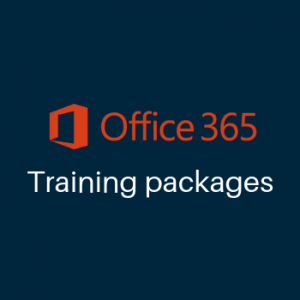8 Undeniable Benefits of E-learning
The clear benefits of e-learning are too often overlooked these days.
And not because of what e-learning fails to offer. But because - over the years - it has somehow become a bit of a dirty word; with connotations of slow hours in some dark office, clicking through pages of text.
But take a fresh look at the new breed of e-learning you’ll discover that it's still a powerhouse in the training world. And it could give your organisation the high-quality education you’re looking for while saving you thousands of pounds.
8 benefits of e-learning: summary
1. Save time and money
2. Access content anywhere
3. Expert-led content
4. Enables blended learning
5. Consistency guaranteed
6. Refresher training on-tap
7. Always up to date
8. Assess effectiveness of training
(Benefits explained below…)
The myth of 'boring e-learning'
If you ask your staff what they think about e-learning, it’s likely that most will say it’s boring.
Like Malcom, for example. He likes nothing more than telling everyone how much he hates e-learning. ‘It’s boring!’, he says, ‘slow, irrelevant, and takes me away from my real job’.
And you feel so sorry for Malcom. Putting him through this ordeal. After all, you want him to enjoy his job.
So you axe the e-learning and let him get him back to his exciting life as a shark tam-
…oh, no wait. Malcom works with spreadsheets.
…
Hmm, still pretty boring, Malcom.
The truth is, Malcom doesn’t like e-learning, not because it’s inherently boring, but because it takes effort to develop new skills.
He’d rather be sitting in front of his spreadsheets, dreaming of being somewhere else.
A large proportion of people who say they don’t like e-learning really mean they just don’t like learning.
Some types of training will suit different people, and some will be more or less engaging. But whether you’re sitting in front of a computer, or in a classroom with an instructor, growing yourself will always take a bit of work.
Why classroom training usually isn’t the answer
If you don’t like e-learning, the most obvious alternative is a classroom course. (Apart from offering your staff no training – but you wouldn’t seriously recommend that, would you?!)
Classroom training has been popular for a long time. Why? Because here’s the scenario:
You send your staff on a course. They get a free coffee from the Free Coffee Machine. They meet six new people and chat about job titles. They spend the day basking in the attention of an expert trainer. The course finishes at 4pm. They get home half an hour early. In short – it’s an interesting break from their 9-5 job.
But in learning terms:
Your staff spend a day out the office away from their jobs. They come back to the office the next day and review their two rushed pages of notes. Weeks go by and they maybe remember maybe one key point that resonated with them; everything else gets thrown in the recycling as soon as their notebook is full.
And what’s more, you pay a lot of money for it.
There’s nothing quite like sitting in front of an expert for a learning experience. But as an employer, with demands increasing and budgets getting squeezed, you need the most effective and cost-effective learning solution for your staff.
And that means well-written, convenient, re-visitable, cost-effective, real knowledge sharing online learning.
Rediscovering the benefits of e-learning
Like all digital products, the standards of most e-learning products keep getting better all the time. New software and skills means courses are more engaging, convenient and informative then they were even a few years ago.
Despite some ill-feeling from staff, loads of managers are still enjoying the benefits of e-learning on their businesses. Especially throughout healthcare and local government sectors.
Over the last few years, demand for online learning has exploded. The range of available local government online training has increased dramatically; and healthcare training for mandatory skills and new health system rollouts are as popular as ever.
Digital learning, designed to replace or complement face-to-face training, is producing benefits and cost-saving for organisations throughout the public sector.
If you still haven’t incorporated e-learning into your training programme, or have been put off in the past, here's a breakdown of 8 benefits of e-learning you could be seeing straight away…
8 benefits of e-learning:
1 - Save time and money
E-learning lets you reduce or even replace the need for comparatively costly and time-consuming face-to-face training. Swapping off-site for online also means you can keep your staff where you need them.
2 - Access content anywhere
Because it’s online, e-learning can be accessed any place, any time. You just need a connected device like a smartphone, tablet or PC/laptop. Staff can complete learning when it best suits them: in the office, from home, on the train...anywhere!
3 - No compromises
Expert-built e-learning courses are written to reflect the best classroom training content. Online users can be confident that they’re gaining the same knowledge and skills, regardless of the learning medium.
4 - Discover blended learning
If you still want classroom training, e-learning can give your staff the edge before attending instructor-led sessions. A blended learning approach can increase skills and streamline course delivery, so trainees are much less likely to fall behind.
5 - Consistency guaranteed
E-learning never has a bad day at the office. Consistency of training for all delegates is guaranteed, meaning there’s no danger of key messages being accidentally forgotten or misrepresented by trainers.
6 - Refresher training on-tap
Learning-content can be revisited at any time, meaning staff can refresh their knowledge whenever they need it. Many organisations find this especially helpful in reducing the need for help-desk and floorwalker support.
7 - Keep up to date
Instant updates to training material can be rolled-out immediately. That means all staff – even those who have already completed the training – will always be on top of important changes and ways of working.
8 - Assess effectiveness of training
Post-course assessments mean your organisation can assess the effectiveness of instructed training sessions. They can also be useful for users who still need a bit of help after their face-to-face training is completed.
escalla has developed a range of solutions to enable you to get the best out of Office 365: from quick video tutorials to major software implementation training and consultancy. Contact us to find out more.








